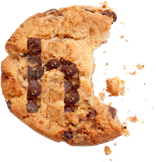18-year-old Justin Sau charts the evolution of humour, explaining what makes each generation laugh and why

'Skibidi toilet' is an animated series on YouTube that became a viral meme and nonsensical expression among Gen Alpha.
Picture by: Kevin Woods | Alamy
Article link copied.
May 23, 2025
From Beavis and Butt-Head to skibidi toilet: A breakdown of generational humour

“If I hear the phrase ‘skibidi toilet’ one more time, I’m gonna lose it.” Such were the words my maths teacher uttered on a bright cold day in January.
It was hard not to agree with him. Being bombarded nonstop, on all sides, by “sigma alpha ohio” often makes me want to lobotomise myself.
But why did I still find it funny? Why did I still chuckle at every single reel that contained the words “gyatt” and “rizzler”? Was my brain degrading from mindless internet consumption or was it indicative of a larger, more fundamental shift in humour itself?
Before we get into the chaos that is Gen Alpha and Gen Z humour, let’s start with the generations that preceded ours, and how their humour has manifested online.
Harbingers’ Weekly Brief
Boomers
First, the “baby boomers” (usually meaning those born between 1946 and 1964). Growing up in a time of great sociopolitical change (the civil rights movement, the sexual revolution, the Vietnam war), their brand of jokes reflected their experiences and attitudes of the era.
As the internet began to flourish in the late 20th century, the now-grown boomers adopted various digital platforms. Today, Facebook is perhaps the largest home to the memes, jokes and images that encapsulate boomer comedic sensibilities. We’ve all seen those distinctive minion memes floating around.
One of the most common themes in boomer jokes is “ball-and-chain” humour, which can be summed up as “grrr, marriage bad”. You’ll often see simplistic cartoons about people loathing their spouses.
As baby boomers have gotten older, other common topics include poking fun at younger generations or self-deprecating jokes about technology use and ageing. There’s also a distinct note of what can be called political incorrectness, tackling topics such as race or gender in ways that may be considered insensitive.
The term “boomer humour” has been coined by youngsters as a way to categorise and sometimes mock the comedy of older internet users. It has become shorthand for jokes that are considered crude, overly simplistic or outdated.
Throughout the years, boomers’ straightforward messages have remained popular, enduring as somewhat of a cultural touchstone, being both something that brings the boomer generation together and something that’s parodied and mocked by younger audiences.
Gen X
Next, we have Gen X (those born between 1965 and 1980). Gen X is often overlooked when it comes to internet humour; they’re sometimes referred to as “the forgotten generation” and are usually overshadowed or lumped in with either boomers or millennials. Nonetheless, the particular events that happened during their adolescence (the Cold War and political scandals such as Watergate) led to a uniquely cynical and sceptical sense of humour.
Additionally, the rise of cable TV and video games meant Gen X was the first generation to be heavily influenced by pop culture. Alternative sources of humour like The Simpsons, Bill Hicks and David Letterman shaped their penchant for drier, edgier humour. Some of the best representations of their cynicism are movies like Fight Club or TV shows like Beavis and Butt-Head.
On the internet, nostalgia is a big driver in Gen X humour: there are lots of memes referencing 1970s and ’80s pop culture or references to how they often had highly independent, unsupervised childhoods. Sometimes their jokes will also poke fun at their own status as the “forgotten generation”.
Millennials
People born between 1981 and 1996 belong to Generation Y, more commonly referred to as millennials. They grew alongside the internet, so their humour reflects the chaos of the late 20th century, with a marked shift towards heavy self-deprecation, often joking about their inability to “adult” properly or address serious topics such as mental health in a way that feels less heavy.
TV shows such as The Office, Parks and Recreation and New Girl are good representations of millennial humour with their blend of cringe-comedy, quirky characters and absurd situations.
The globalisation of pop culture meant that millennials had far more influences to draw from, and fandoms including anime, Star Wars and Harry Potter soon found their way into jokes. As the first generation to grow up properly with the internet, they had a huge impact on meme culture. Early memes such as Bad Luck Brian, Philosoraptor and rage comics were hugely popular among millennials.
Gen Z
Gen Z (born 1997–2012) takes the model set by millennials and runs wild with it, veering heavily into the absurd and surreal. Gen Z humour is constantly shifting and evolving, mirroring the lifespans of internet trends, and thrives on randomness and subversion of expectations.
It’s also often meta: this generation often mocks itself and the very concept of humour. Animated television shows such as Rick and Morty, BoJack Horseman and Adventure Time are quintessentially Gen Z, frequently combining profound philosophical topics with absurd ironic humour.
“Deep-fried memes” are another good example of Gen Z humour: overly compressed images paired with sentences like “me and the boys at 2am looking for BEANS” that usually leaves you wondering, what the hell did I just read? The rise of short-form content means that the jokes are often fast-paced or visually/auditorally stimulating. Other phrases from the era include “big chungus”, “ok boomer” and “sigma grindset”.
Gen Alpha
That brings us to the present, where Generation Alpha (2013–24) is making its mark on the internet landscape. It’s even more nonsensical, fast-paced and hyperstimulating, earning itself the moniker of “brainrot” humour. This is where phrases like “skibidi toilet” or “fanum tax” emerged. A common trend now is to rewrite popular songs, replacing their lyrics with brainrot alternatives.
Gen Z and Gen Alpha humour marks a turning point where it becomes fully global; as digital natives who grew up with the internet, online culture is central to their humour. Just the other day, I made a reference that one of my friends didn’t understand, prompting me to remark that she was the only person I knew who wasn’t “chronically online”.
Though the remark was offhand, it’s true. You have to be constantly involved in the latest trends to even understand some of the sentences that people are saying these days. Humour is changing more and more rapidly, and the constant shift towards absurd, incomprehensible language seems to be a coping mechanism with the world outside.
Younger people experiencing existential dreadin the face of a future rife with uncertainties and the threats of AI, climate change and economic instability often find a sense of escapism or parody in the surrealism that is “alpha ohio sigma”.By relying on these shared cultural references and inside jokes, Gen Z and Gen Alpha are creating a sense of community when traditional institutions feel increasingly unreliable.
From “boomer humour” to “brainrot”, as the internet continues to grow and evolve, we will doubtless see new trends, new jokes and new absurdism emerge, and each generation’s humour will be a powerful reflection of the cultures and attitudes of their time.
In a world of “alphas” and “sigmas”, the upcoming Generation Beta (born in 2025 and beyond) is certainly unfortunately named, but there’s no doubt that the comedic journey they take us on will be eclectic, wild and unpredictable.
Written by:

Culture Section Editor 2024
Hong Kong, SAR
Born in 2007, Justin studies in Hong Kong at the HKIS. Fluent in English and Mandarin, he is interested in journalism, English literature, history, and sports.
Justin joined Harbinger’s Magazine in 2023 as a contributor, writing predominantly about culture. In 2024, he took over the Culture section of the magazine.
Edited by:

🌍 Join the World's Youngest Newsroom—Create a Free Account
Sign up to save your favourite articles, get personalised recommendations, and stay informed about stories that Gen Z worldwide actually care about. Plus, subscribe to our newsletter for the latest stories delivered straight to your inbox. 📲
© 2025 The Oxford School for the Future of Journalism


